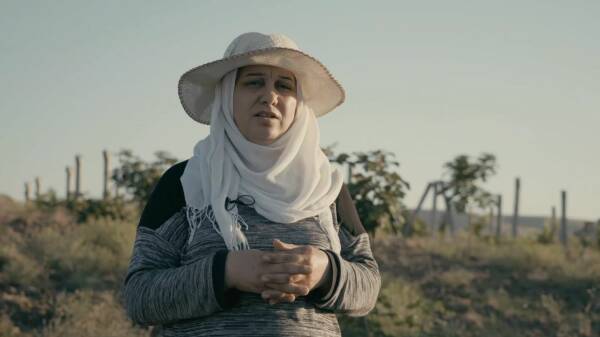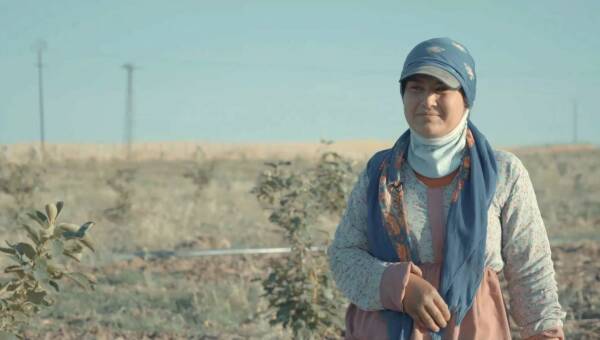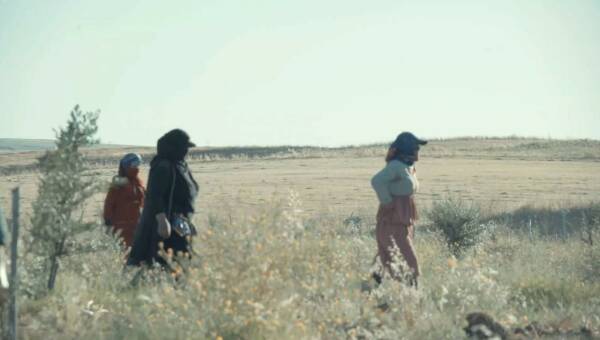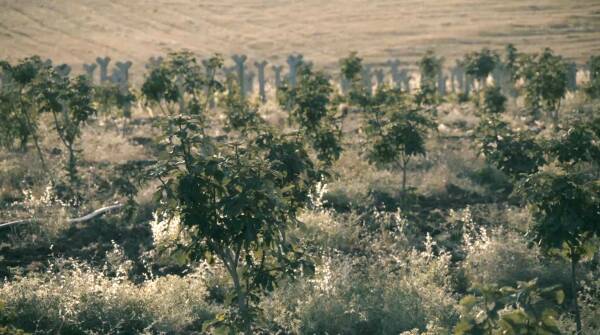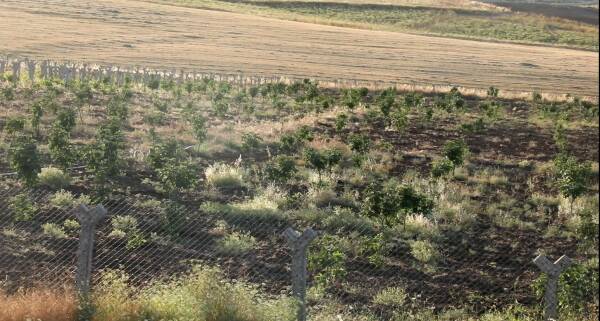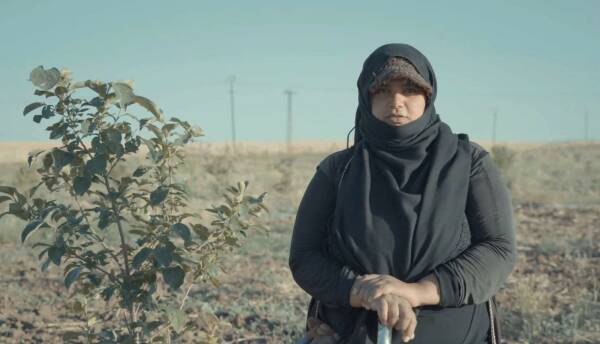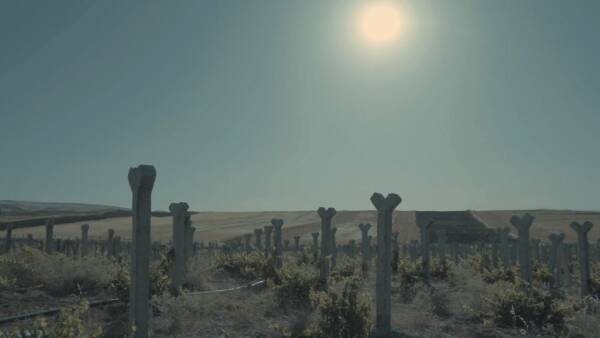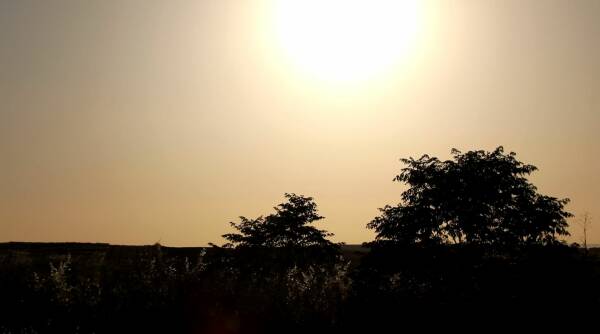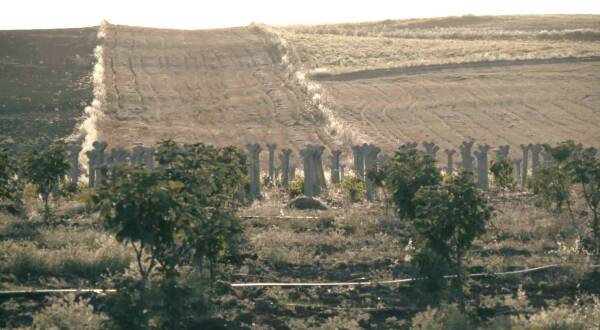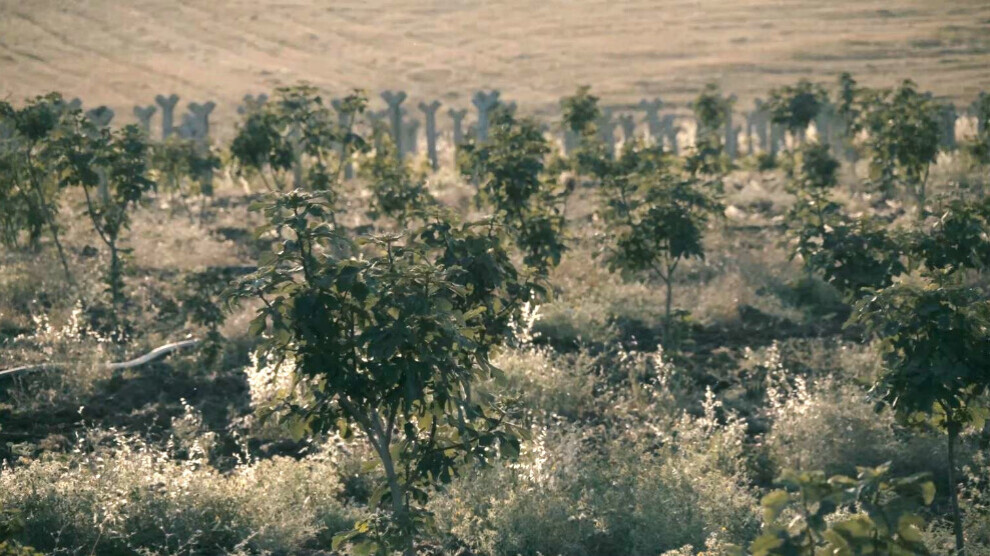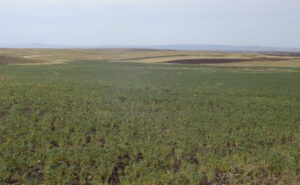4,000 fruit trees have been planted in the Melemerze village of Dêrik (Al-Malikiyah) as part of the “Jiyan (Life) Project” launched by the Women’s Economy. The project will turn into a women’s cooperative when the trees start fruiting next year.
Many cooperatives have been started in North and East Syria to develop women’s communal economy. The Women’s Economy, an organization in North and East Syria aiming at supporting women’s economic empowerment, launched the “Jiyan (Life) Project” in the city of Dêrik (Al-Malikiyah) two years ago. The project will turn into a cooperative next year.
As part of the project, 1,500 fruit trees were planted in the city two years ago. This year, 4,000 fruit trees, including 350 fig trees, 1,700 olive trees and 350 persimmon trees, have been planted on 13 hectares of land in the village of Melemerze. The project will turn into a cooperative when the trees start fruiting next year.
NuJINHA spoke to Hemîda Şawîş, a member of the Dêrik Women’s Economy, about the project.
The members of the women’s economy have been working on the project for two years, Hemîda Şawîş said. “The land was cleared and plowed and 4,000 fruit trees, including fig, olive and persimmon trees, were planted. The aim of the project is to support women’s economic empowerment.”
10 women are responsible for growing and watering the trees. “Every day, they work to care for the trees. There are many cooperatives in the city. Next year, we will turn our project into a cooperative when the trees start fruiting.”
‘The Fruit trees will be given to families’
After the project turns into a cooperative, the Women’s Economy will give the trees to families. “These families will work at the cooperative. The fruits will belong to them so that they will earn a living. The Women’s Economy will be responsible for the trees until they start fruiting. Then, the families will take this responsibility.”
Communal effort, communal economy
Speaking about the cooperatives in the city, she said, “Thanks to the cooperatives, women work together, earn a living and get to know each other. They make efforts together for their cooperatives. Before the revolution in Rojava, women could not participate in the labor force but today they participate in the labor force. As the Women’s Economy, we hold a meeting every month. 25-30 women work at each cooperative to have a communal effort and a communal economy.”
‘Women should be economically independent’
Pointing to the importance of an independent economy for women, Hemîda Şawîş said, “Women should not depend on men. Women should work and be economically independent. The main aim of the cooperatives is to create employment for women. We call on all women to be members of the cooperatives and take part in communal economic activities.”
‘We want to have abundant trees’
Ehed Ehmed Fendî is one of the women responsible for growing and watering the trees. “We are a family living in the village,” she said. “My spouse takes care of this orchard while I dig around the roots of these trees to water them. We work from 7 a.m. to 5 p.m. We have made great efforts for this orchard and see it as our orchard. We want to have abundant trees.”
‘You should make efforts if you want the trees to fruit’
The “Jiyan Project” was also launched in Raqqa. Rîm Xelîf Salim is one of the women working for the project in Raqqa. “We work here in charge of removing weeds under the trees, digging around the roots and watering the trees. You should make efforts if you want the trees to fruit. Our job is hard, but we are happy to work and earn a living.”
